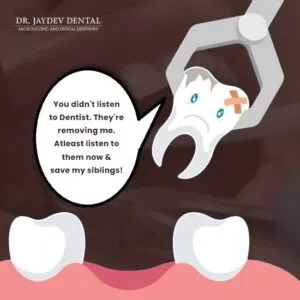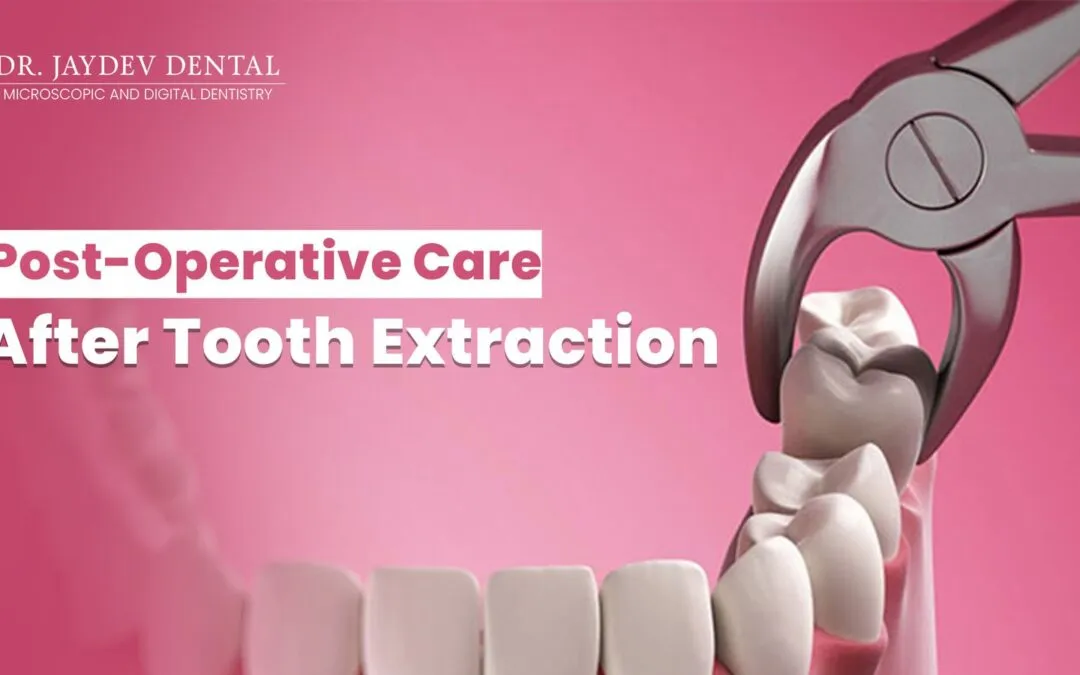There are many reasons for tooth extraction depending on the individual’s teeth problem like decay, infections, gum diseases, etc. Tooth extraction may be painful for initial one or two days, but that does not indicate the long-lasting pain. Sometimes tooth extraction is suggested for the cases of misalignments or overcrowded teeth. What may be the reason for tooth extraction, knowing to care for the tooth post-operation is an important factor to consider.
In this blog, we have come up with tips to recover quickly from tooth extraction pain. So, keep reading this blog for quick and effective result-driven post-care tooth extraction.
Table of Contents
- What is Tooth extraction?
- What is actually involved in tooth extraction?
- Know the types of tooth extraction
- Top 5 reasons why we need a tooth extraction
- Post-Operative care after tooth extraction
- Post-Operative care steps within 48 hours of surgery
- Post-Operative care steps after 48 hours of surgery
- To Sum Up
- FAQs
What is tooth extraction?

Tooth extraction performed on the back of most teeth of the jawline is termed wisdom tooth extraction. If your wisdom tooth is not properly grown or creating pain and discomfort, then you will need to immediately consult the doctor and get that tooth extracted to avoid further decay.
What is actually involved in a tooth extraction?
o, you are clear that tooth extraction is completely removing the tooth from the jaw line and it will not be grown. The tooth extraction process may require one or two visits to examine and process the extraction. Do not worry to get a tooth extracted just because it can’t be grown again. There are many alternatives for you to opt for like dental implants or dentures to fill in the gap formed.
Before you undergo tooth extraction, you will need to get checked for a detailed history of dental diseases, allergies, chronic medical conditions, or any regular to-use of medications. As this tooth extraction is something surgical, there are chances of high bleeding. To avoid this, you will be asked to stop the blood thinners (If you are using any).
This procedure is carried out under anesthesia and the whole process takes a few minutes with slight tugs on the tooth while rocking it from inside. It does not require stitching the open gums, but it is to be protected with cotton pad filling. As the pain may persist for about a day or two, the patient may take paracetamol or ibuprofen to relieve it. You May face certain risks like Pain, bleeding, Jaw stiffness, infection near the wound, or a dry socket.
Know the types of tooth extraction
- Simple Extractions: The extractions are performed on the visible tooth of the mouth. General dentists can perform simple extractions.
- Surgical Extractions: These are associated with teeth that are less visible or accessed. As these extractions involve some surgical procedures, these are performed by trained dentists or oral surgeons.
Here are the top 5 reasons why we need a tooth extraction
Irreparable tooth damage due to severe decays
If the decays are neglected or unnoticed for a long time, they spread to the center of the tooth causing infections. In general root canal treatment is suggested and based on severity, tooth extraction is performed to stop spreading the infection.
To find the solution to periodontal diseases
Periodontal diseases are associated with gums, ligaments, alveolar bone, and other surrounding areas of the tooth. When these infections grow uncontrollably, tooth extraction is advised with respect to the severity.
To heal from the impacted tooth
When the tooth is blocked from coming out, it is said to impact. This happens usually with a wisdom tooth. If left the tooth, it either develops infections from inside or overcrowds the tooth. So, to quickly heal from this, the impacted tooth is extracted.
To eliminate tooth overcrowding
If the patient has to undergo orthodontic treatment where there is no room for teeth to remove or realign, tooth extraction is suggested. Sometimes, adjusting the teeth alignments also, there requires extracting the extra tooth.
If the patient met with an accident
If the patient met with an accident and lost the grip of the tooth to gums, or has a broken tooth, their first choice of restoring them or preventing further severe issues is to extract the damaged teeth.
Post Operative care after tooth extraction
Do’s
- Irrigate with room temperature salt water
- Brush and floss every day
- Use a cotton gauge to Stop Bleeding
- Use Ice packs to relieve pain
Don’ts
- Do Not Use Straw
- Do Not Smoke
- Do not rinse vigorously
- Avoid hot liquids
- No Spitting
- No carbonated beverages
The importance of care before and after any treatment is to be followed. And if you underwent a dental procedure, post-operative care is to be prioritized of all to make the treatment last longer. Don’t bother more about what is post-operative care. It is just following the regular chores which you did before treatment, but with some extra caution and care. If you clearly follow the below-listed care procedures, you will have a better chance of optimizing the healing process and an increased rate of success in avoiding complications.
Post Operation of tooth extraction, there are certain conditions that prevail for a few days. These are to be taken care of before they grow to severity. These care procedures may be different or vary with the severity in the first two days of surgery and post 2 days of surgery.
What are the post-operative care steps within 48 hours of surgery?
For every surgical procedure, some common problems include swelling and bleeding. But if these are going beyond the bearable point, they are to be addressed with care or prevented from further increasing. One of the most common complications is a dry socket which exists if the blood clot fails to develop or becomes dislodged.
Bleeding
After tooth extraction, there is a slight redness in the saliva. But if this redness turns into bleeding, first gently wipe the area with cotton balls and firmly press or bite the area against a gauze for about 30 to 40 minutes. Or you can press the area with a cold tea bag. But do not leave it for longer durations, consult your dentist and get the instructions.
Swelling
As tooth extraction is a surgical procedure, selling is common for anyone and this swelling depends on the extent of surgery and the patient. But, if the swelling is around the mouth, cheeks, jaws, and below eyes, consult your dentist. Any surgical swelling lasts for about 48 hours and if it goes beyond that time, just get proper instructions from your dentist.
Eat Soft Food
Tooth gets hurt by the hard foods we take as they irritate the tooth and jaws. For the first 48 hours or depending on your pain range, stick to foods that are smooth and easy to chew and swallow. Avoid excess chewing, especially in the extracted area.
Prefer eating foods like Soups, Pudding, Yogurt, Applesauce, Smoothies, Boiled potatoes, etc,
Post-operative care after 48 hours of surgery
Oral Hygiene
Oral hygiene is of utmost importance before or after any dental or oral treatments. This helps in preventing and avoiding infections in and around the surgical area. Rinse gently around the treated area for the first few days of surgery. Cleaning the teeth and mouth with warm water and salt at least twice a day, helps remove the gems if any. Brushing can also be done but should be careful to not hurt the extracted tooth area.
Nausea and Vomiting
Nausea and Vomiting in some patients may be due to anesthesia. To avoid this, you should not take medication on empty stomach. Stay hydrated with fluids and liquids mostly. In some patients, strong pain medicines cause nausea. If that is the case, just stop using such medicines or check for alternative ones under your dentist’s instructions.
Avoid Smoking
Smoking is bad for health and teeth as well. The heat and the toxic chemicals from cigarettes are harmful to wounds to heal and thus increase the chances of infections. It slows down the healing process and as a result, the pain remains for longer than usual time. The same applies to alcohol.
Use over-the-counter medications
Anaesthesia wears off in a few days of surgery. Sometimes the pain remains for a long duration. To avoid such pain or discomfort at the surgical site, pain can be managed with over-the-counter anti-inflammatory medication as suggested by your dentist only. But do not use these dosages continuously. If the pain doesn’t vanish after any measures you take, it is a sign of infection or dry socket. Better meet the doctor before you take any other steps.
To Sum Up
Tooth extraction is quite common in every individual right from a young age to an older age. Some opt for it to bring aesthetics out of damaged or discolored teeth while some opt for it to maintain proper oral and dental health.
For any severe tooth extraction, healing takes 48 hours at minimum. After this, you will be in the normal phase of mouth functioning but need a care for few weeks to retain the functioning. We hope this blog covered all the necessary information and you are now left out of all your anxiety and fear of tooth extraction.
If you feel any of the discomforts mentioned above or symptoms, call us to book an appointment and get a more detailed outlook of your condition and get the best treatment from Dr. Jaydev’s dental clinic.
Get Every Single Answer About The Treatment
1. How to manage pain after a tooth extraction?
Tooth extraction is obviously a painful procedure. But this pain will last only for 48 hours maximum followed by slight discomfort for about a week or two weeks. Your dentist will suggest the painkillers and instructs you on the dosage and usage. Simply follow them to heal quicker and better.
2. Can I prefer to eat spicy food?
The foods that irritate the wounds or extracting site are to be avoided. Spicy food irritates the wounded area and hence it is suggestible to avoid.
3. What is the bearable pain duration after tooth extraction?
4. What are the conditions to immediately care for?
1. Increased swelling around mouth, jaws, and tooth that is lasting for more than 3 days. 2. The pain that doesn’t relieve by medication. 3. Heavy bleeding from gums or from the surgical site.

